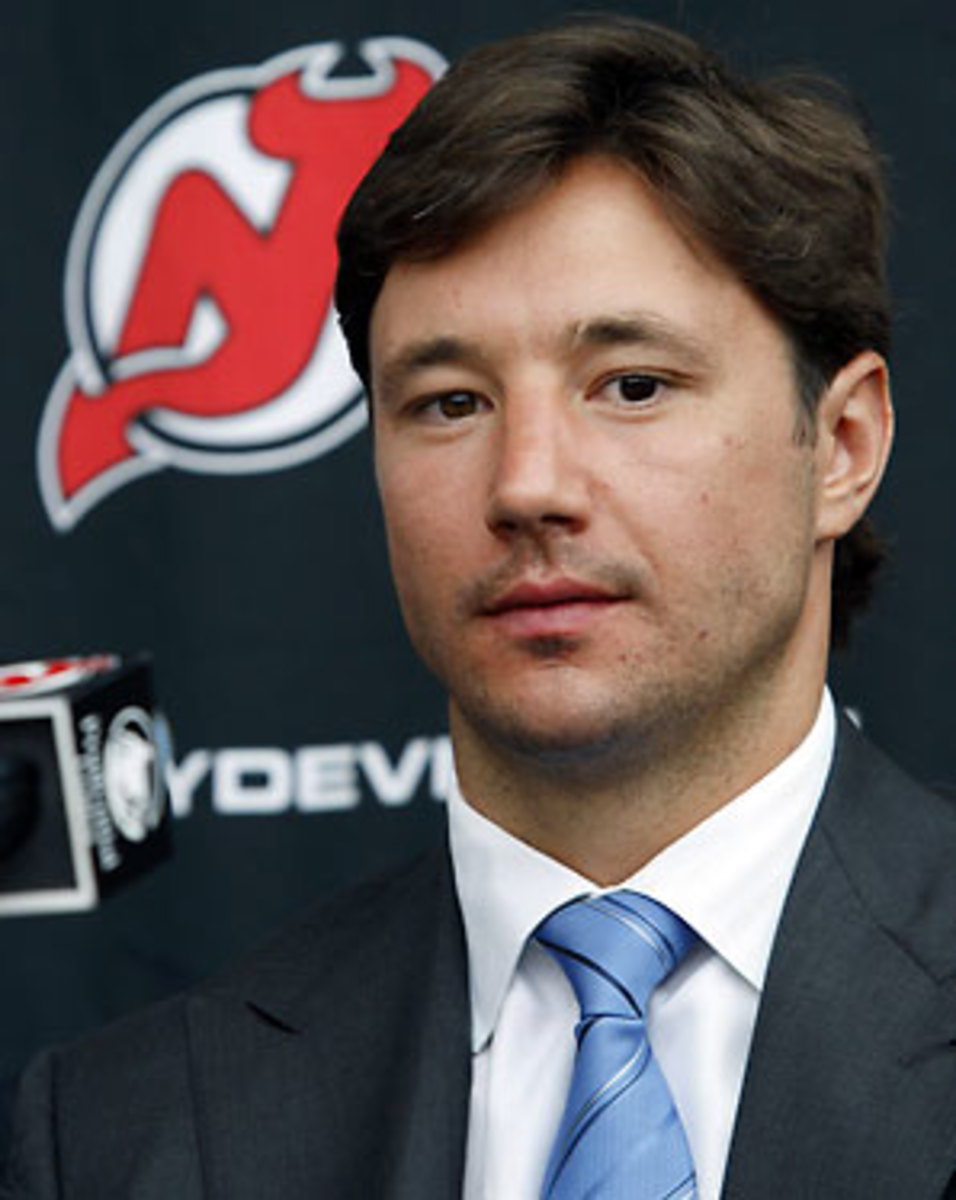Kovalchuk and Devils pushed the pay envelope too far for the NHL
There was a loophole written into the NHL's current CBA, born of the discrepancy between salary and cap hit. Several teams -- including Vancouver, Detroit, Chicago and Philadelphia -- have barged through this eye of the needle with plenty of headroom to spare. And while the league harrumphed at these obvious attempts to massage the rules, ultimately the NHL approved some of the contracts that crushed the spirit but not the letter of the CBA.
Then the New Jersey Devils, Ilya Kovalchuk and agent Jay Grossman decided to drive a Brinks truck through the loophole.
After giving its imprimatur to some, um, curious deals, the NHL finally balked at the 17-year, $102 million contract that the free-agent left winger signed with his former club this week. The money was front-loaded, as it always is in these cases, but this time the dollars fell precipitously off a cliff near the end of a deal that seemed longer than a congressional filibuster. Kovalchuk would receive a $550,000 salary for the final five seasons of the contract -- when he would be between 39 and 44 years old. The stench wafting from Newark across to the NHL offices in Manhattan was just too powerful to ignore.
If in their pursuit of a workable cap number the Devils and Kovalchuk had simply agreed to a 13- or 15-year deal that would have taken him to 40 or 42, the NHL surely would have grumbled and shrugged and said "OK" -- as it did in the case of Chris Pronger's contract in Philadelphia. But the notion of a 44-year-old winger playing in New Jersey for the NHL equivalent of a Starbucks barista's tip money was just a little rich for the league. (Chris Chelios is an anomaly, not an example.)
Kovalchuk's re-signing in New Jersey is not dead. It is merely in repose. Although not yet a Warren Zevon song -- there might be lawyers and money, but no guns -- the Devils and Kovalchuk can rework the contract or the NHLPA can wade in and file a grievance, in which case an arbitrator can decide if the contract was negotiated in good faith.
If you happen to be Devils president Lou Lamoriello, you would have to like your chances if the PA takes the contract to arbitration.
Like a lenient parent, the NHL's previous tolerance for cap manipulation has moved, in a perfectly logical and possibly legal direction, to the Kovalchuk deal. The league had a chance to take a stand against Roberto Luongo's contract with the Canucks. (His 12-year extension, which expires in 2021-22, pays him $1 million each in the final two seasons, when he is 41 and 42. He makes $10 million this season.) The league could have bridled at Pronger's deal with the Flyers, which drops to $525,000 the final two years before he qualifies for unrestricted free agency in 2017-18, just prior to his 43rd birthday. Marian Hossa's deal in Chicago, $7.9 million now but $750,000 the last two years when theoretically he retires after the 2020-21 season at age 42, was even more of a stretch given the position he plays, but the NHL considered these deals merely pushing the envelope but not quite overstuffing it.
The other teams were doing 74 in a 65 mile-per-hour zone, but when the Devils did 76, NHL deputy commissioner Bill Daly turned on his siren and flashed his red light.
If there is not quite precedent for the Kovalchuk signing, there has been enough erosion of principles that probably places Lamoriello on the right side of the issue. This was not a 40-year deal that was going to take Kovalchuk into rarefied Gordie Howe territory, but a nudge-nudge, wink-wink deal that made an elite goal-scoring winner available at the low cap hit of $6 million annually until his presumed retirement at an age when he practically will start wanting his dinner by 4:30.
(Note: A player who signs a contract before age 35 can retire without further cap implications for his team.)
As Lamoriello observed on Tuesday when Kovalchuk was reintroduced in New Jersey, it is possible that contracts such as this will disappear when the current CBA expires after the 2011-12 season. Certainly the NHL would want to close this practice down although it seems to work in the interests of star players and, for those willing to try the gambit, teams. The obvious fix, if it is indeed a problem, is to make salary and cap hit the same number, presuming a salary cap is part of the next CBA. Like everything else, this will have to be bargained.
But a formula for what the NHL now views with alarm was encoded from the start. Yes, there is some soft language in the agreement that proscribes circumventing the CBA, but teams and agents had more than enough wiggle room.
Now in the Kovalchuk case, it's too much. But it's also too late.






